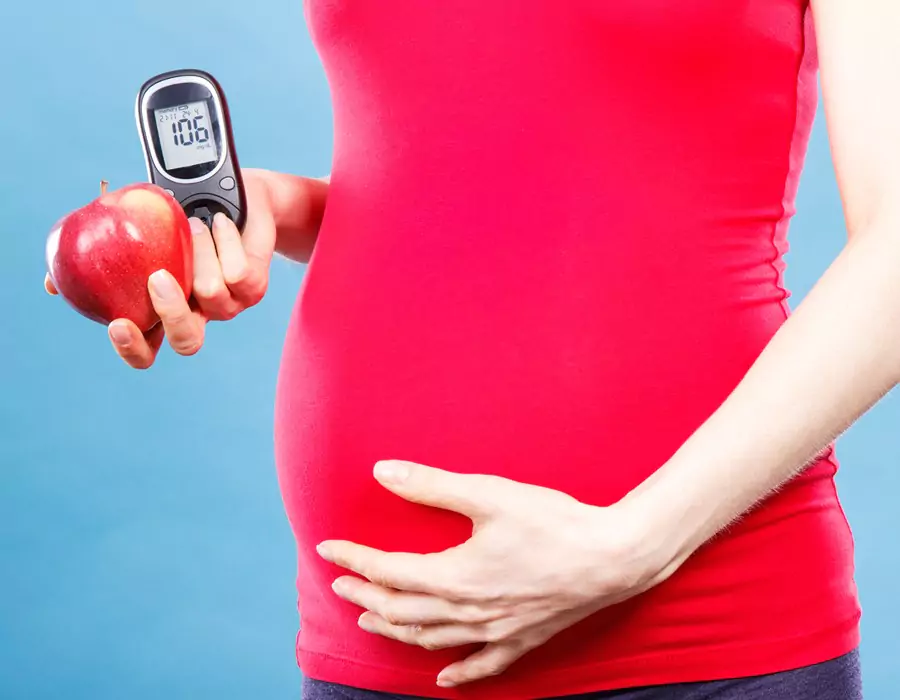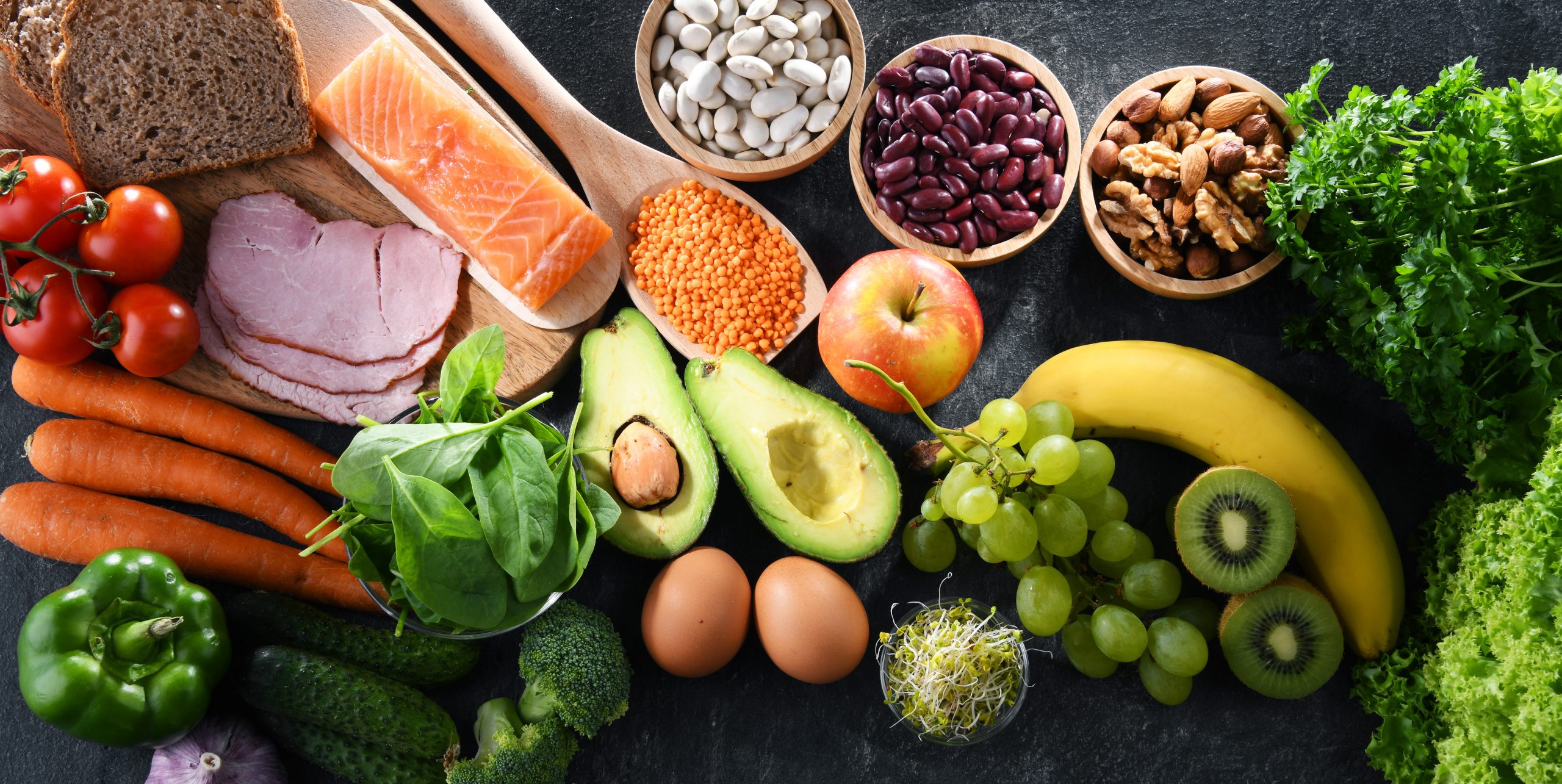
UP TO 40% OFF SITEWIDE






Gestational Diabetes Diet: Everything You Need to Know


Table of Contents
- What are the potential problems that can arise from gestational diabetes?
- Your baby may be large.
- C-Section
- Preeclampsia
- Low Blood Sugar in your Newborn.
- Higher risk of obesity and diabetes in life.
- How do you find out if you have Gestational Diabetes?
- So, what’s a positive or negative result in the Gestational Diabetes test?
- Gestational Diabetes Diet
- How many calories do you really need during pregnancy?
- How Much Carbohydrates a Pregnant Woman Should Eat in Gestational Diabetes Diet
- Protein and fat intake in Gestational Diabetes Diet
- Is it ok to lose weight?
- Diet and weight loss
- How do I control my blood sugars during the night if my diet fails?
- What are the glucose targets?
- If your blood sugars tend to go up during the night, there are a few things you can do.
- What to do with low blood sugar during Gestational Diabetes?
- Summary,
A gestational diabetes diet is something you should know if doctors diagnose you with gestational diabetes. It is a type of diabetes diagnosed during pregnancy. Just like type I and type 2 diabetes, gestational diabetes affects how your body uses glucose also known as sugar.
Just like regular diabetes can be controlled with diet, a gestational diabetes diet can help control it up to 80 percent of women. Why is it so important? High blood sugars result from gestational diabetes that can affect you and your unborn baby's health.
If you do not treat your gestational diabetes, you may end up having problems during or after pregnancy and your baby may be affected.
What are the potential problems that can arise from gestational diabetes?
Your baby may be large.
For first-time moms, the thought of delivering a baby can be frightening. However, having the risk of delivering a large baby may create even more anxiety. If you have gestational diabetes, your pancreas is working overtime to produce insulin, but the insulin that’s produced does not do its job to lower your blood glucose levels. Insulin does not cross the placenta, but glucose and other nutrients do.
The extra blood glucose goes through the placenta, causing the baby to have high blood glucose levels. The baby's pancreas then needs to make extra insulin to get rid of the blood glucose. Since the baby is getting more energy aka glucose, than it needs to grow and develop, the extra energy is stored as fat.
This complication is referred to as macrosomia. Babies with macrosomia face health problems including damage to their shoulders during birth. Because of the extra insulin made by the baby's pancreas, newborns may also have very low blood glucose levels at birth and are also at higher risk for breathing problems. Babies born with excess insulin become children who are at risk for obesity. Later in life, they become adults who are at risk for type 2 diabetes.
C-Section
A larger baby can also result in a cesarean section. Due to the size of the baby, your doctor may recommend a c-section to avoid difficulty with the descent down the birth canal. As mentioned, the vaginal birth of a larger baby can cause damage to the shoulder called “shoulder dystocia”. If you follow a reasonable gestational diabetes diet you can prevent this complication.
Preeclampsia
This is a very serious condition that results in elevated protein in the urine and high blood pressure. Preeclampsia can have very severe consequences such as the death of the mother and or the baby. Preeclampsia occurs in about 10-30% of women with gestational diabetes.
Untreated preeclampsia can cause your baby to not get enough blood and nourishment through the placenta in your womb. It’s very important to keep track of your blood pressure during pregnancy and look out for the warning signs of preeclampsia which include:
- This tends to be more noticeable in the hands or face.
- Elevated blood pressure can present causing headaches, dizziness, blurry vision, or ringing in your ears.
Salt is definitely something you should pay attention to in your gestational diabetes diet to prevent preeclampsia.
Low Blood Sugar in your Newborn.
Babies of mothers with gestational diabetes can have low blood sugar (hypoglycemia) after birth. If blood sugars are too low, it can cause seizures in the newborn baby. An intravenous solution of glucose may need to be given to the newborn to return the baby’s blood sugar to a normal level.
Higher risk of obesity and diabetes in life.
Yes, your gestational diabetes diet today can modify the future of your baby. It is called genetic modification or methylation.
How do you find out if you have Gestational Diabetes?
Between week 24 and week 28 of your pregnancy, your provider will screen you for gestational diabetes. This screening is typically done by a glucose tolerance test. You will be instructed to drink a sweet solution containing about 50 grams of glucose.
An hour after drinking the solution, you will have your blood drawn to check your blood glucose level. If your blood sugar is over 190 mg/dL this would indicate gestational diabetes. After a positive result, you may need to go for a 3-hour version of the glucose challenge test.
This is the same process as the other glucose challenge test except you will be given 100 grams of glucose. Another option that your provider can order (which is the approach I prefer) is to give 75 grams of glucose and follow with a blood test.
This method is only an hour and will give you a firm positive or negative result. As soon as there is an abnormality in your blood sugars you should start on a gestational diabetes diet.
So, what’s a positive or negative result in the Gestational Diabetes test?
Each provider can use a slightly different threshold to determine a positive or negative test result. Using a lower threshold can result in more false-positive test results. This is why the test is often repeated using a longer version with a higher glucose solution of the same process.
The 2-step method uses 50 grams of glucose to test: 130 mg/dL (lower threshold) If blood glucose is 200 mg/dL or higher, you may not need to do the second glucose challenge. The 3-hour testing method uses 100 grams of glucose to test: If your fasting glucose of 95 mg/dL after 1 hour is 180 mg/dL, at 2 hours is 155 mg/dL, at 3 hours is 140mg/dL.
If your results are greater or equal to the above-mentioned values (+/- 2 points) this indicates a positive test result. The 1-step method using 75 grams of glucose to test: Fasting blood glucose level of more than 92 mg/dL or at 1 hour is 180mg/dL, at 2 hours is 153mg/dL or more. If two or more values meet the criteria, a positive test result is confirmed.
Gestational Diabetes Diet
How many calories do you really need during pregnancy?
Your individual daily caloric need in your gestational diabetes diet depends on your BMI (body mass index). You can easily calculate your BMI by using a simple BMI calculator which you can find online. Check this one out: https://www.nhlbi.nih.gov/health/educational/lose_wt/BMI/bmicalc.htm If your BMI is normal between 18.5-25 then you can have up to 30 kcal per kilogram of your total weight.
Example: If you are 135 lbs. that is around 61 kg, then you can have up to 1,800 calories per day. If your BMI is considered overweight more than 25 but less than 35, your calories are more limited at 22-25 kcal per kilogram of your total weight. If your BMI is 35 or above, you should reduce your caloric intake to 12-15 kcal per kilogram of your total weight.
Trimester-Specific Weight Gain
Typically, in the first trimester of pregnancy, women do not need extra calories in their diet. Even though many women may have certain cravings that does not indicate the need for additional calories. In the second trimester of pregnancy, your caloric needs to go up by 350 calories per day from your pre-pregnancy requirement.
Even if you do not develop gestational diabetes from excess caloric intake leading to excessive weight gain during pregnancy, this still creates complications. In the third trimester of pregnancy when gestational diabetes typically develops, women generally require around 450 extra calories per day from their pre-pregnancy requirement even in their gestational diabetes diet.
These are some general guidelines but as an individual patient, you will need to be assessed by your doctor to understand your specific needs. Once the caloric needs are calculated, carbohydrate intake needs to be determined.
Because carbs in a gestational diabetes diet are the primary nutrient affecting glucose levels after a meal. The total amount of carbohydrates, the distribution of carbohydrates over meals and snacks, and the type of carbohydrate are important. These can be manipulated to blunt hyperglycemia( high sugar) after meals.
However, reducing carbohydrates to decrease postprandial glucose levels may lead to higher consumption of fat. On the other hand, high fat may have adverse effects on maternal insulin resistance and fetal body composition.
How Much Carbohydrates a Pregnant Woman Should Eat in Gestational Diabetes Diet
Pregnant women use more carbohydrates and need more calories than nonpregnant women. A standard recommendation for a pregnant woman is around 175g of carbohydrates total per day. Since you need carbohydrates for a healthy pregnancy; we do not recommend keto, no-carb, or low-carb diets for gestational diabetes diet. Some studies have shown, that being in ketosis during pregnancy affects the baby's IQ and mental capacity.
An ideal meal plan for women with gestational diabetes mellitus includes three small or moderate-sized meals and two to four snacks. Adjustment of the meal plan should be ongoing and based upon the results of self-glucose monitoring. Also, your appetite, and weight-gain patterns matters In addition we have to consider maternal dietary preferences and work, leisure, and exercise schedules.
Close follow-up is important to ensure nutritional adequacy. Individual assessment and self-blood glucose monitoring are used to determine and modify specific nutrition/food recommendations. If insulin therapy is added to nutrition therapy, a primary goal is to maintain carbohydrate consistency at meals and snacks to facilitate insulin adjustments.
Having gestational diabetes requires finding a balance to prevent blood sugar spikes with fasting and after meals. By restricting your carbohydrates too much in your gestational diabetes diet, you are at risk of ketosis and it’s important to avoid ketosis during pregnancy as we already briefly discussed.
We recommend that pregnant women eat 3-4 meals and 2-4 snacks per day for the gestational diabetes diet. The key is to keep the carbohydrate load distributed throughout the day to prevent blood sugar spikes. A rule of thumb could be eating 30-45 grams of carbohydrates per meal and about 15 to 20 g of carbohydrates per snack.
Your individual needs depend on how much your blood sugars spike at 1 or 2 hours after a meal. Your fasting blood sugars are also very important. If your blood sugar is spiking even with reduced carbohydrates down to 30 g per meal, then medication may be necessary.
Since during pregnancy restricting carbohydrates too much is a definite “NO” then medication is the only solution in this situation. To prevent the complications of gestational diabetes, your fasting, 1-hour, and 2-hour blood sugars must be well controlled.
Protein and fat intake in Gestational Diabetes Diet
The remaining calories should come from protein in a good gestational diabetes diet. We recommend 20 percent of total calories and fats. We recommend 40 percent of the total calories. We only recommend a saturated fat intake of less than 7 percent of total calories.
Protein intake should be distributed throughout the day and included in all meals. You should have snacks to promote satiety, slow the absorption of carbohydrates into the bloodstream, and provide adequate calories. A bedtime high-protein snack may be needed to prevent ketosis at night.
Is it ok to lose weight?
We do not recommend weight loss in pregnancy, although controversy exists regarding this recommendation for obese women with higher BMIs. Mom’s obesity typically worsens impaired glucose tolerance. Furthermore, maternal gestational diabetes and obesity can increase adverse pregnancy outcomes. These negative outcomes can be excessive fetal growth and preeclampsia, and their combination.
Diet and weight loss
After prescribing the diet, we need to pay attention to changes in weight. A study including 31,074 women with gestational diabetes mellitus showed that those with appropriate weight gain had the best outcomes. Whereas excessive weight gain was associated with a significantly increased risk of having a large gestational age infant, preterm birth, and cesarean delivery.
Suboptimal weight gain increases the likelihood of avoiding medical therapy for gestational diabetes. This also decreased the likelihood of having a large gestational age neonate. Yet, there were smaller gestational-age neonates in this population who did not gain enough or a healthy amount of weight.
Some women experience a minimal amount such as 1 to 5 pounds of weight loss or weight stabilization for the first few weeks after starting nutritional therapy. If that happens we evaluate this based on the overall weight gain in pregnancy and ongoing surveillance of weight gain in the weeks.
How do I control my blood sugars during the night if my diet fails?
First of all, you will need to test your blood sugars 4 times a day. You can use CGM systems such as Dexcom or Freestyle Libre. We at SugarMD also offer a cellular system that sends fingerstick glucose directly to us, so you do not have to worry about collecting, recording, or sending the data to us. You will need to check before breakfast (fasting) and 1 or 2 hours after each meal while working on your gestational diabetes diet.
What are the glucose targets?
Fasting blood glucose concentration: <95 mg/dL (5.3 mmol/L) One-hour postprandial blood glucose concentration: <140 mg/dL (7.8 mmol/L) Two-hour postprandial glucose concentration: <120 mg/dL (6.7 mmol/L) If you have gestational diabetes you want to make sure that your blood sugars are less than 95mg/dL fasting (when waking in the morning).
Blood glucose levels 1- hour post-meal should be 140 mg/dL or below. At the 2-hour post-meal period, blood sugars should be 120mg/dL or less. You should check your blood sugar fasting as well as 1 or 2 hours after meals. I personally prefer a glucose check 1 hour after a meal although some doctors may prefer 2 hours after a meal.
If you forget to check your blood sugar at the 1-hour mark it is okay. As long as you obtain a value by the 2-hour period. Again, a balanced and carefully designed gestational diabetes diet will help you achieve these goals.
If your blood sugars tend to go up during the night, there are a few things you can do.
- Exercising in the evening will reduce your blood sugars overnight.
- Insulin sensitizer medications may be prescribed if you consistently wake up in the morning with blood sugars greater than 90-95 mg/dL and lifestyle changes are not helping. Medications such as Metformin are safe during pregnancy.
- Your doctor may also prescribe insulin injections. An Injection prior to bed will help control blood sugars overnight.
Note: Starting medications to help control your blood sugars during pregnancy does not mean you will need to continue to take them after pregnancy. After pregnancy, your blood sugars will return to normal.
What to do with low blood sugar during Gestational Diabetes?
Let’s say you are strictly adhering to the gestational diabetes diet we provided to you. What happens if hypoglycemia(low blood sugar) happens? Hypoglycemia in pregnancy is defined as blood glucose <60 mg/dL. Low sugar remote from meal or snack time is rare in women with gestational diabetes mellitus. Especially if you are not taking medication and only doing nutritional therapy alone.
If low sugar below 60 mg/dl happens we recommend treating it by administering 10 to 20 g of a mixed protein and carbohydrate snack immediately. Giving pure simple sugar to a pregnant woman with diabetes may lead to rapid elevation of glucose followed by a rapid decline. Mixed protein and carbohydrate snacks tend to reduce fluctuation.
Summary,
When you’ve had gestational diabetes, you are at risk of developing diabetes in the future. So, it’s a good idea to keep up with screenings every 6-12 months after pregnancy. Also, use the knowledge you gathered in your gestational diabetes diet for post-pregnancy life as well.
So, losing the weight that has been gained during pregnancy can help reduce the risk of developing diabetes in the future.
Author: Dr. Ahmet Ergin. Diabetes expert, Endocrinologist Gestational Diabetes SugarMDs Diabetes Care Center 2260 Palm Beach Lakes Blvd. Step 212 Unit #7 West Palm Beach, FL 33409 www.sugarmds.com Office phone: 561-462-5053
Written By Dr. Ahmet Ergin
466 total articles
Meet Dr. Ahmet Ergin, a highly skilled and dedicated endocrinologist with a passion for diabetes care. Dr. Ergin earned his medical degree with honors from Marmara University in Istanbul. He completed internal medicine residency and endocrinology fellowship at Cleveland Clinic. Dr. Ergin is board-certified in Internal Medicine, Endocrinology, Diabetes, and Metabolism due to his vast medical expertise. He's a certified diabetes educator, author of “The Ultimate Diabetes Book,” and founder of “the SugarMD YouTube channel.” Dr. Ergin offers exceptional diabetes care to his patients in Port Saint Lucie, FL, helping them manage effectively. For a closer look into his insights and experiences, connect with Dr. Ahmet Ergin on LinkedIn, Instagram, and YouTube.”
Disclaimer: These statements have not been evaluated by the Food and Drug Administration. Information on this website isn't intended to treat, cure or prevent any disease. Discuss with your doctor and do not self-treat.
Products















